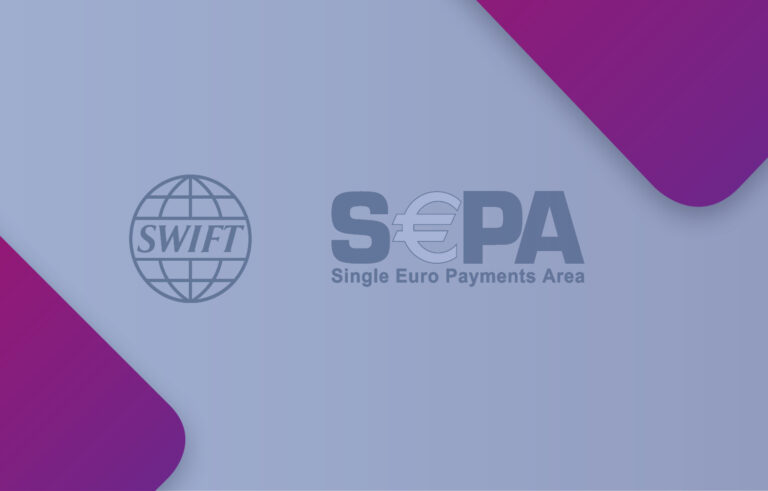
For entrepreneurs, the issue of jurisdiction is one of the most important concerns. Many businessmen are still going over the list of offshore zones to potentially register their companies. The reason is clear: the absence of control by government structures, namely tax agencies. However, recently opposition to offshore companies has grown.
For example, the European Union has compiled a blacklist of offshore companies, which includes 17 countries – from South Korea to the Bahamas. There is also a “gray” list of “tax havens”, with a total of 47 countries. On top of this, these lists are subject to change from year to year.
Often companies with activities in offshore zones have problems with beneficiaries, opening accounts in their countries’s banks (and in the EU as a whole) and even in fintech companies, since few people want to work in complicated financial schemes. Besides, the reputation of clients is thoroughly checked. Demonstrable legal income is as important as ever for business owners today, especially when they have to officially confirm their expenses and standards of living.
In addition, when problems arise, private law firms are very reluctant to help a company “from the offshore”, and such companies cannot rely on state structures. Additionally, it is not clear whose help can be counted on in a case where accounts in their country of origin are suddenly arrested, frozen or cease to conduct banking transactions – precisely because certain agencies found out about the activities of the entrepreneur “in the offshore”. In this case, the entrepreneur has to quickly withdraw at least part of the business from offshore, which often leads to huge financial losses, at best, – even when everything is done legally and you can show a record of your activities.
Calculate the risks and draw conclusions
Therefore, it shouldn’t come as a surprise that more and more European businessmen are trying to register their businesses in the EU simply by choosing a country where the tax burden is easier and the economic climate is healthier, for example, migrating from one country to another, say, as laws change surrounding a particular type of activity.
Don’t forget that when a company becomes more transparent to its partners and financial institutions, the owner will have a clear profit. Yes, sometimes the amount – the earnings – in this case decreases, but the risk of losing everything in the offshore is significantly reduced as well. In addition, in your home country you will avoid problems with financial and state institutions. In general, it is worth thinking over, taking everything into account.
The Union is single, but there are nuances
Today, the EU consists of 27 states. And it is telling that even the UK, despite Brexit, is in no hurry to leave the single European market. Why this is so – analysts are still arguing. After all, there are risks for both the UK and the entire EU. All large and medium-sized European banks are interconnected in a complex system; they depend on each other. And the British banks in this system play a major role.
In any case, at the present moment the EU economy is the second largest in the world; its GDP in 2017 amounted to 15.3 trillion euros. This is 22 percent of the total world economy in nominal terms, in accordance with purchasing power parity. This is a single market with free movement of capital and more than 500 million consumers.
Most of the EU countries – 19 out of 27 – form the single monetary European Economic Union, the so-called Eurozone. The euro is used as its official currency; standardized licensing rules, uniform customs duties, etc., are in effect within it.
However, the organizational and legal forms and rules for registering companies, the minimum authorized capital, tax rates and some other important nuances are determined by the national legislation of the EU member states (EU directives, as a rule, provide only general principles). And for entrepreneurs this is especially important, when they have to choose a particular country, based on their particular business needs. So businessmen must always evaluate everything as a whole.
The price of prestige – and more
In the countries of the Old Europe, tax rates are generally quite high. However, one should understand that when choosing British, German or French jurisdiction, an entrepreneur pays for prestige as well. And the latter can directly affect the development of his business.
Another example is Switzerland. Although this country is by no means a “tax haven”, it nevertheless has a very liberal business policy, especially for new companies that are registered there. Taxation in Switzerland is conducted at the federal level, at the cantonal level and, finally, at the municipal level.
So, depending on a number of variables, including the place of registration, a company can receive both a very high and extremely low tax rate. For example, while the federal corporate tax rate is 8.5 percent then in the canton of Zug (known as the “Swiss Crypto Valley” thanks to numerous startups), the profit tax for the first 100,000 Swiss francs is only 3 percent and 5.75 percent for amounts exceeding this minimum. It is also worth noting that Switzerland has concluded double tax avoidance treaties with many countries.
Jurisdiction services for foreign companies are more and more confidently offered by Eastern European countries. Here it is worth highlighting such countries as Poland, the Czech Republic, Hungary and even the Baltics. Although taxes in these countries are not always beneficial for different businesses, the states offer various bonuses.
One of these bonuses is the opportunity to label products “Made in the EU”, which is perceived by consumers much more positively than goods with a “Made in China” label. Another bonus is the opportunity to obtain a Schengen Area visa. A third bonus is the granting of residence permits – permanent (like in Poland), temporary (in Estonia), or stipulated by “certain conditions” (in Latvia).
Finally, registration of a legal business in any of the EU countries, in addition to the availability of various tax benefits and international financial instruments of the EU (for example, ERDF – the development and cohesion fund), provides wide opportunities to work with private and national lending systems, banking and venture financing, to receive grants of startup development programs and so on.
The national economies of the EU member states are at different levels of development, having varying degrees of attractiveness for those who wish to conduct commercial activities in Europe. Therefore, for example, Russian and Ukrainian investors register companies first in Riga or Bratislava, and then enter the markets of Germany, France or England. Many entrepreneurs, who plan to play a long and, often, international game, even at the global level, understand that accepting the rules of modern European business is a prerequisite, and that registration “in the offshore” is fraught with problems.
An expert opinion
For comment, Bilderlings turned to its partner, the international consulting company BVA, which provides a full range of services for registration of European firms:
“One cannot but agree that there is not, and cannot be, any one and only, most beneficial and preferable for all, European jurisdiction. It all depends on the scope of activities, and on the peculiarities of the work of your particular business. And who, if not you, its owner and creator, knows better its strengths and weaknesses? If you compare the practice of taxation in different European countries, you will most likely see that in some places it covers the whole sphere of your business, and in others the same activity is taxed on preferential terms or not taxed at all.
As for the financial transparency of European companies, it is already difficult to call it a “distinctive advantage”. This is simply the norm of doing business in Europe. Therefore, you should take it into account: by choosing a European jurisdiction you choose for yourself a strict attitude to the entire financial accounting process. You simply need to learn to perceive this as just another advantage. That is, in the first place, a reflection of the liquidity of the company, in the same way as assets, property and securities raise the status of a company in credit and payment institutions“.
Subscribe to our page on Facebook to stay up-to-date on the latest news from the world of Fintech, and also contact Bilderlings‘ specialists and we will find the best offer for you.






